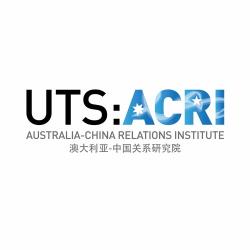Guests: Professor Jocelyn Chey AM, Visiting Professor, University of Sydney; Mr Richard Broinowski, public affairs commentator and former President of the Australian Institute of International Affairs New South Wales branch.
Professor Chey and Mr Broinowski are former Australian diplomats.
Host: Professor James Laurenceson, Deputy Director, Australia-China Relations Institute, University of Technology Sydney
As the Australia-China bilateral relationship has grown since the establishment of formal diplomatic relations in 1972, discourse on the relationship has tended to be dominated by economic and strategic issues. Human rights are a part of the relationship that sometimes struggles to get the attention given to developments in the economic and strategic realms. Yet it is no less pressing.
Last year, governments and observers like Human Rights Watch noted with significant concern reports on the mass internment of up to a million ethnic Uighurs in the Xinjiang Autonomous Region. The People’s Republic of China’s (PRC) opaque legal system has been another source of perturbation, with PRC and non-PRC citizens subject to arbitrary detention, often with basic rights – such as that to legal representation – denied.
How has the treatment of human rights issues in the PRC evolved over time? How have Australian responses to these evolved? And going forward, how should Australia manage dialogue with the PRC on human rights issues?
This episode of the ACRI podcast brings together two former Australian career diplomats, Jocelyn Chey and Richard Broinowski, to discuss these questions with James Laurenceson.
It might be acknowledged that the Communist Party of China (CCP) worked toward improving human rights to some extent since its inception in the 1920s, with concrete examples including raising the status of women, giving land rights to landless peasants, and successive reforms which have seen the improvement of labour rights for industrial workers.
However, there have also been significant setbacks, including for instance, the Tiananmen Square Massacre. Professor Chey’s family-in-law experienced property seizure even before the formal establishment of the PRC, and her brother-in-law ‘disappeared’ during the Cultural Revolution. Her first employer, James Francis, was likewise detained from 1969-73 – becoming the first in a succession of Australian citizens to be arbitrarily detained in the PRC. In the 21st century, the PRC has tended to focus on economic rights over individual rights – a policy the PRC government calls ‘human rights with Chinese characteristics.’
Australian responses to human rights issues in the PRC have been reactive and inconsistent, and the Australian government has tended to respond to human rights issues only after private representation. Australian engagement with human rights in the PRC over time has been uncoordinated and typically follows the lead of other countries.
To rectify this Professor Chey proposes that Australia set out its definition of and commitment to human rights. This would form the basis for a consistent, coordinated response to human rights issues such as the death penalty, not only with the PRC, but also with other countries, and including Australia itself. Professor Chey also proposes that Australia adopt a version of the US Magnitsky Act, which permits measures like visa cancellation and asset seizures against those known to be responsible for human rights violations. (Professor Chey’s recommendations are drawn from a policy brief she authored for Australian public policy initiative, China Matters. Her full list of recommendations is available here).
Mr Broinowski believes that such an action is not likely to be well-received by the PRC government, who regard human rights as an ‘internal matter’. He notes that other countries have been ‘punished’ through trade and other aspects of their bilateral relations with the PRC for criticising its treatment of human rights, and as such it is unlikely that the current Australian government would adopt an Australian version of the Magnitsky Act.
Professor Chey, on the other hand, believes that human rights are the ‘absolute bottom line’ and that taking a stand will, in fact, be respected, stating that the PRC response is unlikely to be long term. Mr Broinowski, meanwhile, states that Australia’s advocacy for human rights should be kept in perspective of other issues such as the South China Sea, and additionally is vulnerable to accusations of hypocrisy, given the country’s own treatment of Indigenous Australians and asylum seekers.
Summary written by Michael Zhou, Project and Research Officer, Australia-China Relations Institute, University of Technology Sydney.
Technical production by Amy Ma, Communications Officer, Australia-China Relations Institute, University of Technology Sydney.
Theme music by Sam J Mitchell.


